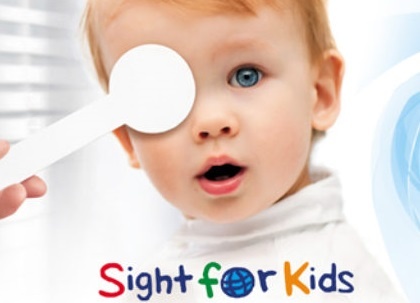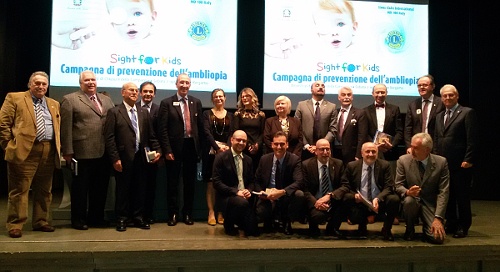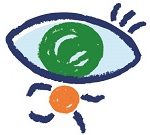THE “SIGHT FOR KIDS” CAMPAIGN, ADDRESSED TO 100.000 CHILDREN IN THE WHOLE OF ITALY, WAS PRESENTED IN BERGAMO ON 7TH APRIL 2018

Preventing an eye from becoming “lazy” or reactivating it by bandaging the healthy eye, means saving binocular vision. However, early intervention against amblyopia in the first years of life is essential. This is why the Lions Clubs International Foundation are promoting the “Sight for Kids” campaign, which so far, has already allowed over 24 million children worldwide to access an eye examination. In Italy, the campaign aims at getting about 100 thousand kids involved and is sponsored by the Ministry of Health and the Italian branch of the International Agency for the Prevention of Blindness (IAPB Italy), amongst others. The initiative was also discussed extensively during the Bergamo convention on 7th April 2018. A delegation from the IAPB Italy and its President, Mr Giuseppe Castronovo, attended the event.

We know that the prevalence of the “lazy eye” ranges from between 1 and 5 percent of the world population. We should keep in mind that, according to the WHO, around 19 million children under the age of 15 are visually impaired, 12 million of whom suffer from non corrected serious refractive errors (among them are also amblyopic children).
We should prevent by all means, early damage to the sight of every human being: A lazy eye can hinder the development of brain regions connected to vision, even if the eye looks healthy on the outside.
For its part, the IAPB Italy promotes numerous campaigns addressed to children, among which are “Occhio ai bambini” (Keep an eye on the children) and “Apri gli Occhi!” (Open your Eyes!). Around 30 percent of the children who took part in another campaign called “Vediamoci Chiaro” (Let’s see clearly) had never been to an ophthalmologist. The majority of these students had only had an eye examination just before admission to intermediate school. We need to act before that age: parents should take their children for an eye examination soon after birth, around 3-4 years of age and before admission to elementary school. After that, regular testing should take place throughout life.
Reference source: Lions




